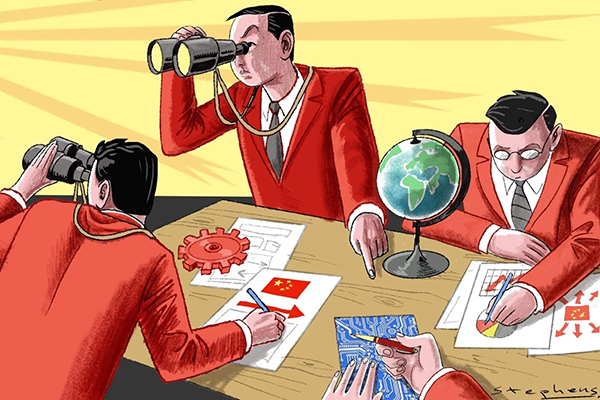Victor Gao: Caught between the US and Russia, Ukraine’s only hope is to become neutral
February 10 , 2022■ While the US insists Ukraine is free to join Nato, Russia claims cultural ties with Ukraine and sees the eastern expansion of the alliance as a challenge to its security.
■ With the threat of a Russian invasion mounting, the best hope for Ukraine’s future peace is to become a neutral state like Switzerland.
By Victor Gao, vice-president of the Center for China and Globalization (CCG) .
The Ukraine crisis has degenerated into a melodrama with potentially devastating global geopolitical consequences. Ukraine wants to join the North Atlantic Treaty Organisation (Nato) as a safe bet against any potential Russian aggression.
The United States and Nato insist that the organisation’s expansion is not subject to any country’s veto, and seem eager for Ukraine to join. Russia sees the continued expansion of Nato, especially into Ukraine, as a direct challenge to its security and has vowed to ensure Ukraine never joins the group.
While US President Joe Biden has sent 3,000 US troops to several front-line Nato member states in eastern Europe, he maintains that the US will not send troops to Ukraine to fight against a Russian invasion, instead promising tough sanctions, including personal sanctions against President Vladimir Putin, should Moscow invade.
At the same time, political figures in Ukraine are accusing the US and other Western countries of being weak in the face of Russian aggression, and are calling for swift pre-emptive sanctions before an invasion occurs.
Since the end of the Cold War in 1991, the geopolitical entanglement between Russia, the US and other Nato member states has never brought its key players as close to the brink of war as now, and the world is holding its breath as it awaits their next moves, with catastrophe seemingly all but inevitable.
To pre-empt such a disaster, realism and pragmatism are sorely needed.
As the US and other Nato members states continue to insist that Ukraine has full sovereign right to apply to join the organisation, they might be reminded of the Cuban Missile Crisis of 1962.
Back then, when the then Soviet Union and Cuba – both full sovereign countries – wanted to base Soviet missiles in Cuba, Washington objected so strongly that not even the prospect of a nuclear war could deter it from imposing a naval embargo to prevent further Soviet missiles from arriving in Cuba.
Why didn’t then US president John F. Kennedy stop to acknowledge the sovereignty of the USSR and Cuba, or their independent sovereign decision-making power to deploy Soviet missiles in Cuba?
The answer is because Kennedy rightfully concluded that the deployment of Soviet missiles in Cuba would permanently change the security profile of the United States, and that it should therefore stop at nothing to prevent such deployment.
Kennedy has been ranked as one of the greatest presidents in US history for refusing to buckle under pressure and succeeding in forcing the withdrawal of Soviet missiles from Cuba.
Today, Putin has ample reason to conclude that Nato’s expansion into Ukraine and the deployment of medium-range missiles there would fundamentally change Russia’s geopolitical security profile and, as such, vehement opposition is to be expected.
Those with sufficient objectivity and historical knowledge may see that Putin is facing Ukraine’s entry into Nato in the same spirit that Kennedy faced the Cuban Missile Crisis.
It is vital to know oneself and those on the other side when dealing with complicated and potentially explosive geopolitical situations like the situation with Ukraine and Nato. The United States should be reminded of the profound wisdom of the “golden rule”: “Do not do unto others that which you would not have others do unto you”.
The best way out of this geopolitical quagmire may be for Ukraine to become a permanent neutral state, to be registered with the United Nations, and to be acknowledged as such by all relevant stakeholders, including Russia, the United States, the Nato and its member states, and China.
Becoming neutral doesn’t impinge on the sovereignty and territorial integrity of the country in question. On the contrary, neutral nations like Switzerland, Austria and Sweden are shining examples of a commitment to the protection of sovereignty and territorial integrity on the one hand, and a devotion to peace, stability and development on the other.
We need to consider the complicated history of Ukraine, the prickly evolution of Nato, Russia’s unrelenting opposition to the bloc’s expansion, and the potential devastating consequences for peace and development in stakeholder countries and the world at large.
In this context, the real risk is not whether Ukraine joins Nato, but whether Ukraine can become a fully protected neutral state, or instead becomes a permanent black hole, depriving itself and all stakeholders of peace, stability and development.
From SCMP, 2021-2-10
Topical News See more






